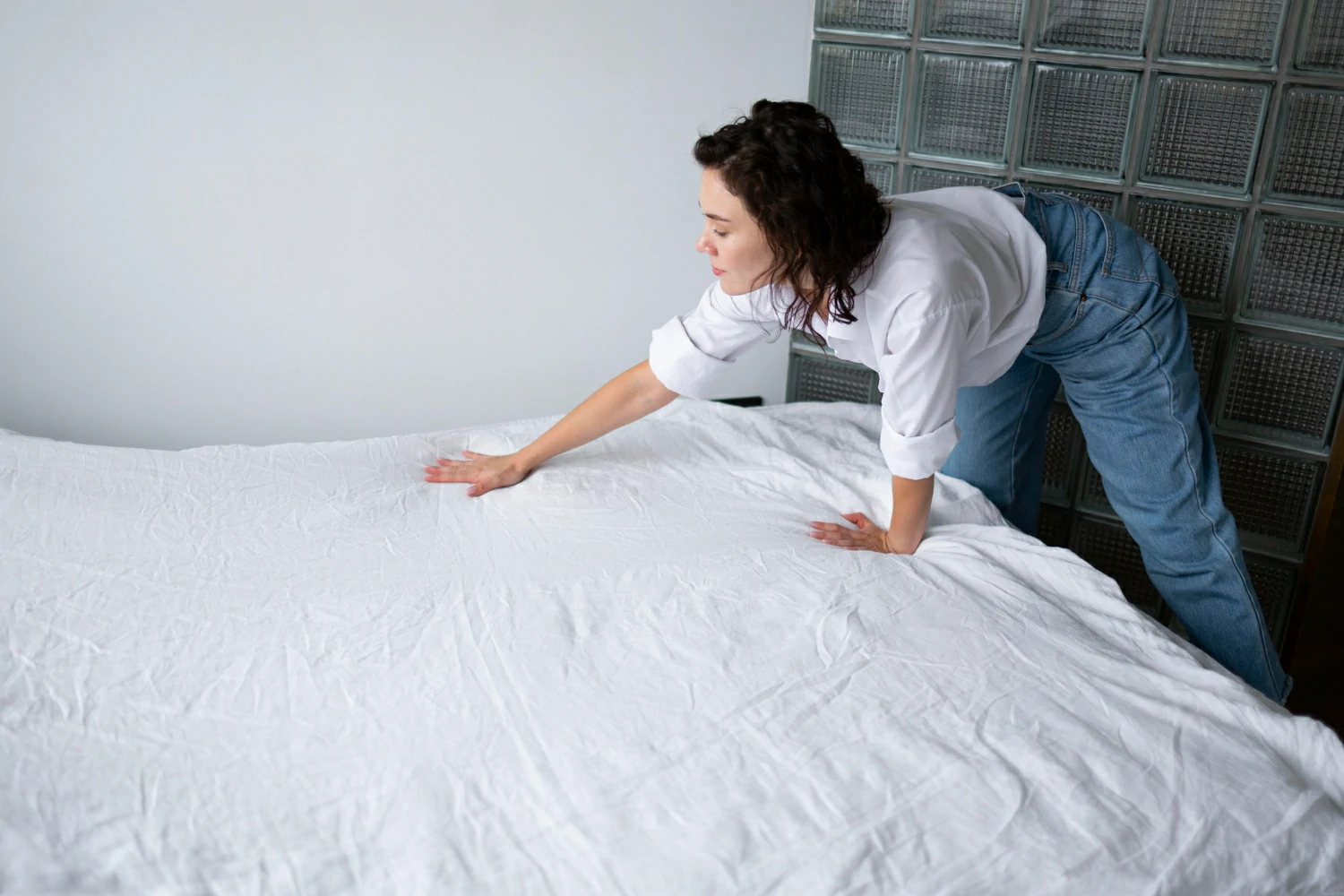Is Mold in a Hotel Room Dangerous? Answer is – Yes, mold in a hotel room can be dangerous. Exposure to mold can trigger allergies, worsen respiratory issues like asthma, and cause other health problems, especially in those with weakened immune systems. Long-term exposure can lead to more serious health concerns.
Summary
- Mold thrives in damp, humid environments commonly found in hotel rooms (especially bathrooms).
- Mold exposure can cause allergic reactions, respiratory problems, headaches, fatigue, and other health issues.
- Individuals with compromised immune systems or existing respiratory conditions are at higher risk.
- Prolonged exposure to mold can pose serious long-term health risks.
- Hotels must take proactive measures to prevent mold growth and address any detected issues promptly.
Is Mold in a Hotel Room Dangerous?
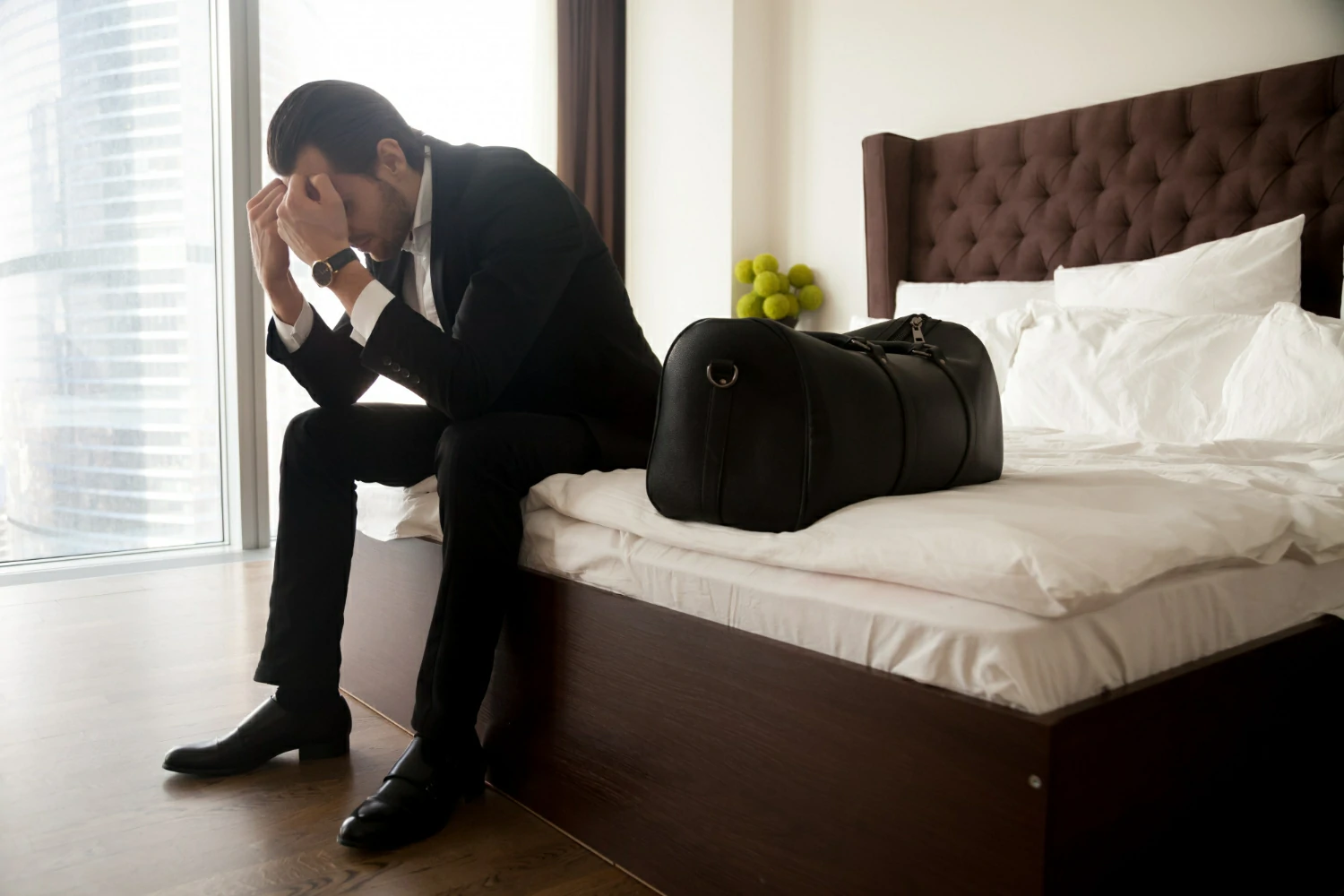
You’ve been looking forward to your vacation for months, and you finally check into your hotel room. But as you settle in, you notice a strange musty smell, or worse, visible patches of discoloration on the walls or ceiling. You’ve encountered mold, and your dream getaway could take a turn for the worse.
What is mold?
Mold is a type of fungus that thrives in damp, humid environments. It reproduces through tiny spores that float through the air, easily finding their way indoors.
While mold plays an essential role in the natural world by breaking down organic matter, it can pose problems when it takes root inside buildings, including hotel rooms.
Why is mold a problem in hotel rooms?
Hotel rooms present several conditions that make them susceptible to mold growth:
High humidity: Bathrooms, in particular, are breeding grounds for mold due to showers, bathtubs, and steam. Poor ventilation can exacerbate the problem, trapping moisture and allowing mold to flourish.
Leaks and water damage: Hidden leaks behind walls, under sinks, or around windows provide the perfect damp environment for mold to grow unseen. Water damage from flooding or burst pipes can also lead to widespread mold problems.
Inadequate cleaning: If housekeeping staff don’t meticulously clean and dry all surfaces, especially in bathrooms, mold can quickly take hold. Infrequent cleaning of carpets and upholstery can also trap moisture and promote mold growth.
Air conditioning units: While air conditioning helps control temperature, if the units aren’t properly maintained, they can become a source of mold spores, circulating them throughout the room.
Dr. Sarah Miller Expert Opinion
“Hotel rooms, particularly bathrooms, offer an ideal environment for mold growth,” says Dr. Sarah Miller, a certified indoor air quality specialist. “The combination of moisture, warmth, and organic materials like dust and skin flakes creates a perfect breeding ground for these fungi.”
Health Risks Associated with Mold Exposure
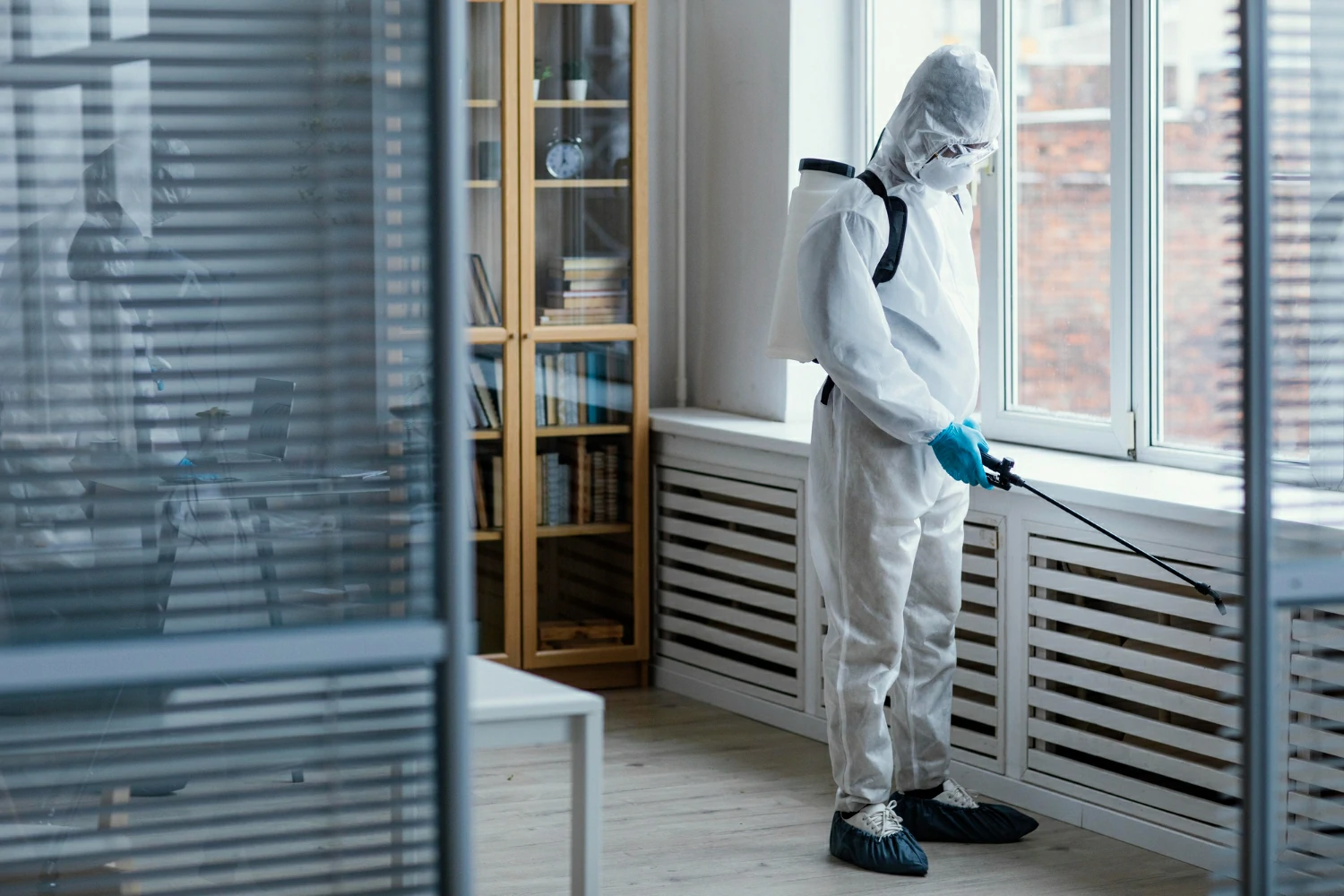
Mold exposure can trigger a range of health problems, and the severity can vary depending on several factors, including the type of mold, the extent of exposure, and an individual’s overall health and sensitivity.
1. Allergic reactions
For many people, mold exposure primarily triggers allergic reactions similar to seasonal allergies. Symptoms can include:
- Sneezing
- Runny or stuffy nose
- Itchy, watery eyes
- Skin irritation or rashes
2. Respiratory problems
Mold can irritate the airways, leading to respiratory issues such as:
- Coughing
- Wheezing
- Shortness of breath
- Chest tightness
3. Asthma exacerbation
Those with asthma are particularly sensitive to mold. Exposure can trigger severe asthma attacks, making it difficult to breathe and necessitating medical attention.
4. Headaches and fatigue
Mold exposure can also contribute to:
- Persistent headaches
- Unexplained fatigue or tiredness
5. Increased risk for those with compromised immune systems
Individuals with weakened immune systems due to underlying health conditions or medical treatments are at higher risk for more severe health complications from mold exposure. These complications could include:
- Invasive fungal infections, particularly in the lungs or sinuses
- Hypersensitivity pneumonitis, a type of lung inflammation
Dr. Philip Thompson Expert Opinion
“Mold exposure can pose significant health risks, especially for those with allergies, asthma, or compromised immune systems,” explains Dr. Philip Thompson, a board-certified allergist and immunologist. “Even short-term exposure in a heavily contaminated hotel room could trigger serious symptoms.”
How to Identify Mold in a Hotel Room
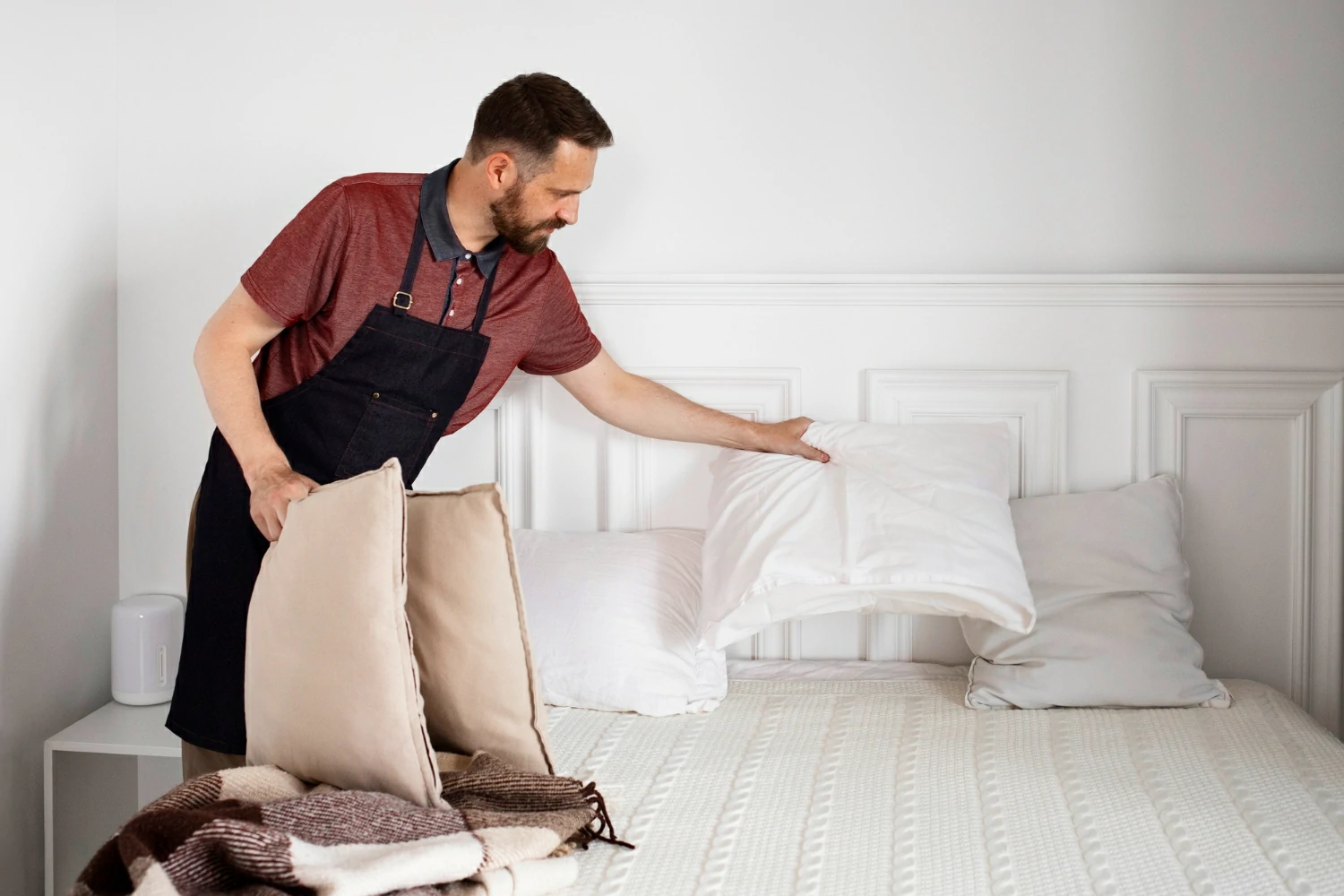
Mold isn’t always obvious, but knowing what to look for empowers you to take action if you notice signs of its presence in your hotel room. Here’s how to play detective:
1. Visible signs of mold
The most obvious indicator of mold is, of course, seeing it. Look closely for:
Discoloration: Black, green, white, gray or other colored patches on walls, ceilings, baseboards, around windows, or on furniture.
Fuzzy or slimy textures: Mold can sometimes appear fuzzy or slimy.
Warping or bulging: Severe mold growth can cause wallpaper to peel or surfaces to warp and bulge.
Where to focus your search
Bathrooms: Check shower curtains, tiles and grout, behind the toilet, under the sink, and around the bathtub.
Closets and carpeting: Damp closets or areas where wet items may have been placed on the carpet can be mold hotspots.
Air conditioning vents: Look inside the vents and on the surrounding walls for signs of mold.
Behind furniture: If you can, peek behind headboards, dressers, and other furniture for any hidden growth.
2. Musty, damp odors
Even if you don’t see any visible mold, a persistent musty odor is a strong warning sign. It’s often described as earthy, damp, or even similar to rotting wood. Trust your nose – if something smells amiss, investigate further.
3. Signs of water damage or leaks
Since moisture is essential for mold growth, look out for:
Water stains: Discolored water stains on walls, ceilings, or floors.
Peeling paint or wallpaper: Bubbling or peeling surfaces can indicate moisture trapped behind them.
Recent repairs: Freshly patched and painted areas could be masking a past water leak or mold problem the hotel attempted to quickly fix.
Michael Conner Expert Opinion
“Don’t underestimate the power of your senses,” says Michael Conner, a certified mold inspector. “Sight and smell are your first line of defense. A musty smell lingering in a hotel room, even without visible mold, warrants further examination.”
What to Do If You Find Mold in Your Hotel Room

1. Inform hotel management immediately
Your first step should be to alert the hotel management about the mold issue. Here’s how to approach it:
- Be specific: Describe the location, the extent of the mold, and any musty odors you’ve noticed.
- Show your evidence: Share the photos or videos you took as documentation.
- Express your concerns: Explain how the mold is affecting your health (if applicable) and emphasize the need for immediate action.
- Remain calm but firm: If you encounter resistance, politely but firmly reiterate the seriousness of the issue and your expectations for a resolution.
2. Request a room change
The most straightforward solution is to request a different room. Here’s what to keep in mind:
- Inspect the new room thoroughly: Before accepting a room change, carefully check for the same signs of mold or musty odors that you observed in the original room.
- Don’t hesitate to ask for upgrades: If you’re concerned about the hotel’s ability to provide a mold-free environment, politely request an upgrade or even consider moving to a different hotel.
3. Consider leaving the hotel if the issue is severe
If the mold problem appears widespread, or the hotel management is unresponsive to your concerns, it might be best to find alternative accommodations. Prioritize your health and wellbeing:
- Look for signs throughout the hotel: Check hallways, common areas, and other rooms (if possible) for visible mold or dampness. If the problem seems extensive, leaving might be the safest option.
- Cancel and seek a refund: Contact the booking platform you used, or the hotel directly to explain your health concerns and request a full refund.
- Research other options: Use hotel booking websites or apps (Booking.com, Hotels.com, Expedia) to quickly find alternative hotels in the area.
4. Document your findings (photos, videos)
Throughout the process, it’s crucial to document everything for your records. This step is valuable for several reasons:
- If your health is affected: Documentation, along with medical records, could be helpful if you decide to pursue any further action.
- Online reviews: Sharing your experience through online reviews on the hotel’s website or booking platforms warns other potential guests of the problem.
- Reporting to authorities: If the hotel has a history of neglect, consider reporting the issue to your local health department or consumer protection agency.
Dr. Sarah Miller Expert Opinion
“Don’t hesitate to prioritize your health over your vacation plans,” emphasizes Dr. Sarah Miller, an indoor air quality specialist. “If a hotel shows blatant disregard for mold issues and cannot provide a safe environment, take your business elsewhere and report the situation to prevent others from getting sick.”
Preventing Mold Growth in Hotel Rooms
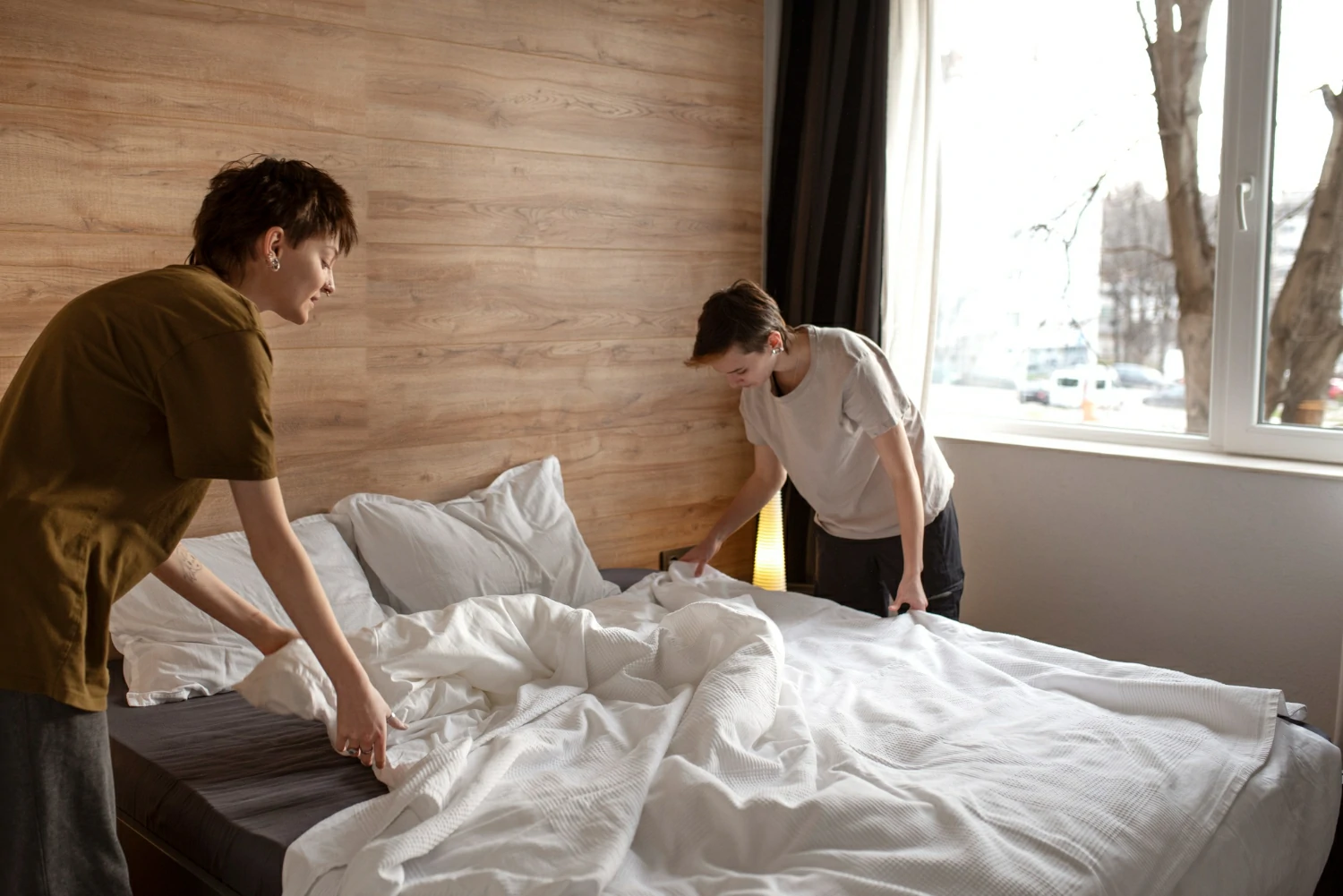
Preventing mold requires a multifaceted strategy on the hotel’s part along with some awareness as a traveler to spot potential problem areas.
1. Proper ventilation (especially in bathrooms)
Bathrooms are the most vulnerable to mold, and the key is preventing moisture buildup. Here’s what hotels should do:
- Powerful exhaust fans: Bathrooms need adequately-sized exhaust fans that effectively remove steam and moisture during and after showers or baths.
- Encourage guest use: Simple signage reminding guests to use the exhaust fan can go a long way.
- Regular vent maintenance: Exhaust fans need cleaning and maintenance to ensure they work properly and don’t become clogged with dust.
2. Regular cleaning and maintenance
Meticulous housekeeping and routine upkeep are essential to catch signs of mold early on and prevent it from taking hold:
- Thorough cleaning routines: Staff should be trained to clean all bathroom surfaces rigorously, removing any traces of moisture and preventing soap scum or mildew buildup. Attention needs to be paid to often neglected spots like shower curtains, behind toilets, and tile grout.
- Carpet cleaning and inspection: Carpets should be professionally cleaned on a regular schedule, and inspected for any moisture buildup in the padding underneath, especially in humid climates.
- Preventative maintenance: Routine inspections of plumbing fixtures, window seals, and air conditioning units help catch any potential leaks early.
3. Addressing leaks and water damage promptly
Even minor leaks can quickly turn into significant mold problems if not addressed immediately. Hotels need to:
- Train staff to spot the signs: Housekeeping and maintenance staff should be trained in recognizing water stains, peeling wallpaper, and other signs of potential water damage.
- Have a rapid response plan: Protocols should be in place for reporting leaks and initiating immediate repairs, including thorough drying and remediation if mold is found.
- Prioritize guest reports: If a guest reports a leak or water damage, it should be taken seriously and investigated promptly.
4. Humidity control measures
Beyond bathrooms, maintaining comfortable humidity levels throughout the hotel helps prevent damp conditions favorable to mold growth:
- Air conditioning systems: Properly maintained AC systems not only control temperature but also help dehumidify the air. Staff should be trained to clean AC units regularly to prevent them from spreading mold spores.
- Dehumidifiers: In humid climates, portable dehumidifiers can be used in problem areas to remove excess moisture from the air.
Emily Carter Expert Opinion
“By implementing proactive prevention strategies, hotels can create healthier environments for guests and staff alike,” says Emily Carter, a hospitality consultant specializing in sustainability and healthy buildings. “Regular inspection, maintenance, and addressing issues quickly are far more effective than dealing with major mold infestations later.”
The Hotel’s Responsibility
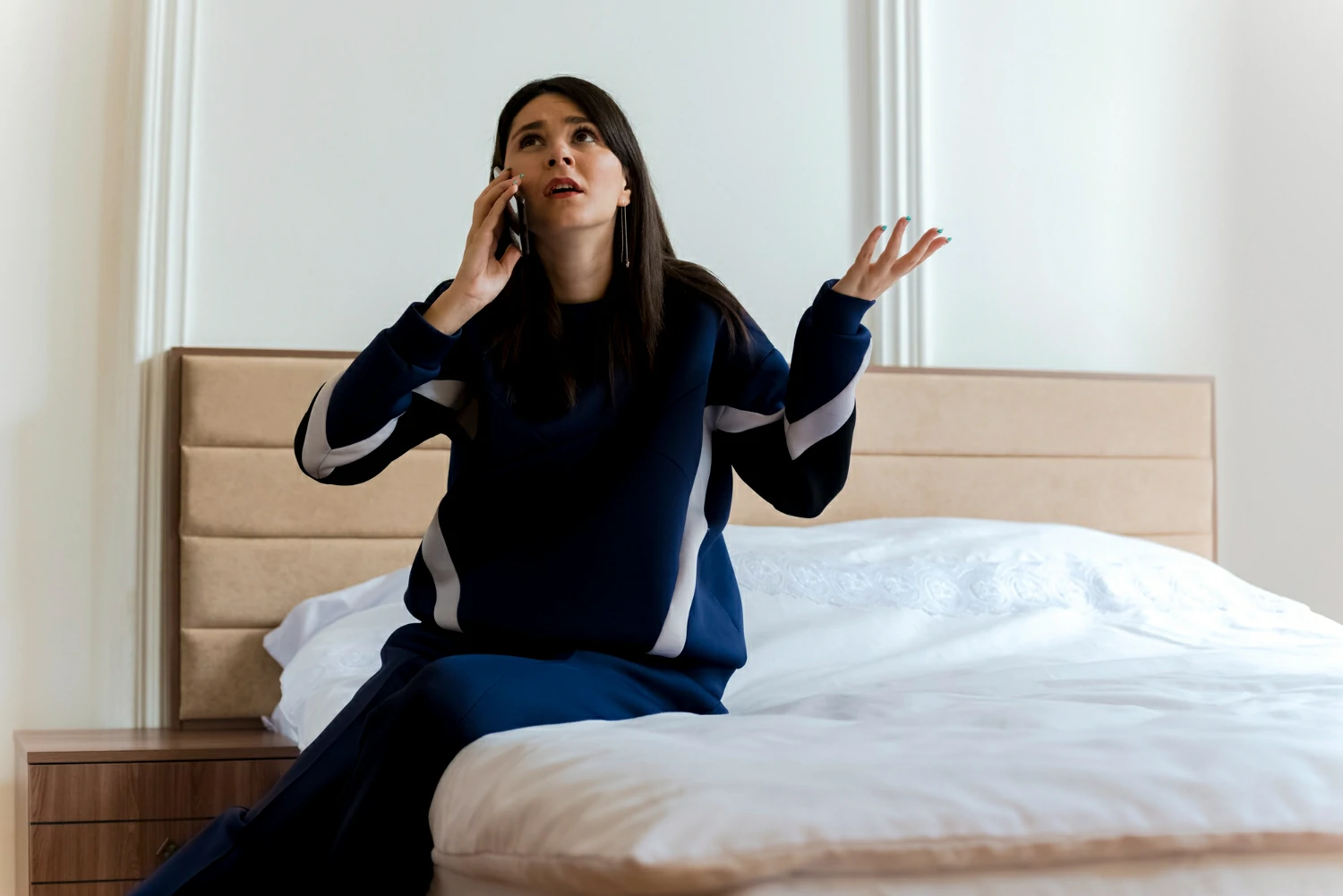
While the specifics vary based on local laws and regulations, hotels have a general obligation to take reasonable measures to prevent and address mold issues in their facilities.
1. Mold prevention protocols
Proactive prevention is a foundational responsibility of any hotel. This includes:
- Staff training: Housekeeping, maintenance, and front desk staff should all be trained to recognize the signs of mold and water damage, understand preventative measures, and have clear reporting protocols.
- Regular inspections: Routine inspections of rooms, common areas, and HVAC systems help identify problem areas before mold has a chance to become widespread.
- Maintenance plan: A preventative maintenance schedule should encompass plumbing, air conditioning, window seals, and any areas susceptible to leaks or moisture buildup.
2. Prompt response to guest concerns
When a guest reports mold, a leak, or any concerns related to potential mold growth, the hotel must take it seriously and act swiftly:
- Thorough investigation: Every report warrants a prompt and meticulous investigation to determine the extent of the problem and identify the source of the moisture.
- Communication with guests: Transparency is key. The guest should be kept informed about the investigation’s findings and the steps the hotel takes to address the issue.
- Offering solutions: This means providing a new room, facilitating a hotel change, or offering a refund if the problem is severe or not swiftly addressed.
3. Remediation measures if mold is discovered
If mold is found, the hotel must take proper action to remediate the problem, not simply attempt to mask it:
- Professional assessment: Depending on the extent, mold remediation may require specialized professionals to assess the severity, identify the source, and determine the appropriate cleanup procedures.
- Safe containment: If remediation is necessary, affected areas must be sealed off to prevent the spread of mold spores.
- Thorough cleaning and removal: This includes removing moldy materials, cleaning and disinfecting affected surfaces, and addressing the root cause of the moisture problem.
- Post-remediation inspection: It’s advisable for hotels to conduct an independent inspection after cleanup to ensure the mold problem has been fully resolved.
Dr. Philip Thompson Expert Opinion
“Hotels shouldn’t view mold as a minor inconvenience, but as a potential risk to the health of guests and staff,” says Dr. Philip Thompson, an allergist and immunologist. “Proactive prevention and proper remediation procedures are essential to protect everyone who enters their facility.”
Conclusion
Mold in hotel rooms isn’t just an aesthetic issue – it’s a potential health concern that shouldn’t be ignored. While guests can’t control every aspect of their hotel stay, awareness and vigilance go a long way in protecting your health and wellbeing. Here’s a recap of the key points:
Mold thrives in damp environments: Hotel bathrooms, poorly ventilated rooms, and areas with leaks or water damage provide ideal conditions for mold growth.
Health risks are real: Mold exposure can trigger allergies, worsen respiratory problems, and lead to more severe health issues for those with weakened immune systems.
Don’t ignore the signs: Look for visible mold, musty odors, or evidence of water damage.
Advocate for yourself: Report any mold concerns to hotel management immediately, and demand a resolution.
Hotels have a responsibility: Prevention, prompt response to guest concerns, and proper remediation if mold is found are crucial aspects of a hotel’s commitment to guest health.
FAQs
Q: Can a short stay in a moldy hotel room make me sick?
While reactions vary, even short-term exposure can trigger allergic reactions or respiratory symptoms in sensitive individuals. The longer the exposure, the higher the risk, especially for those with pre-existing conditions.
Q: What if the hotel doesn’t take my concerns about mold seriously?
Document your findings (photos, videos), consider leaving, and share your experience through online reviews. In severe cases, you might report the issue to your local health department.
Q: Can I get compensation if mold in a hotel room impacts my health?
Potentially, but this might involve legal action. Seek medical attention and document everything, from the condition of the room to any doctor’s visits or medical treatment required. Consult a lawyer to determine your options.
Q: Are there ways to minimize my risk of encountering mold in hotels?
While there’s no guarantee, you can reduce the chances by choosing hotels with good reputations for cleanliness, reading online reviews carefully, and inspecting your room upon arrival.
